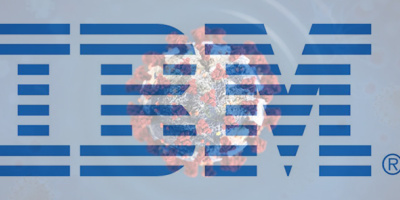With about six months of tirades behind me, this seems like an appropriate time to take a moment to credit the editor who, in addition to doing an amazing editing job, also goes out of her way to direct my attention to news items that might serve as fodder for my rants. Thanks, Victoria.
Recently, Victoria forwarded links to three New York Times articles, all published within the span of a few days. While each article addressed a different topic, they were all related in one respect. It seems that there are a lot of technology developers working for Big Brother or his helpers.
The articles discussed two uses of RFID tags, tracking students and monitoring the movement of prescription drugs, and an unrelated technology application, advertisers' monitoring of Web surfing behavior. I am of two minds on these things. (Being of two minds isn't bad. That's at least four times more minds than the most generous of my critics say I have.) In all three cases, one can make strong arguments for the benefits offered. Nonetheless, while I trust my big brother, being a paranoid person, I don't particularly trust Big Brother.
According to the first article, students in at least one school have cards with embedded RFID chips. These are read as students do things like get on or off school buses, enter or leave the school, attend extra-curricular activities, and so on. School administrators use this data to check attendance and locate students. The information is posted on the Web so worried parents can verify that their children got to school safely. Parents can also use the system to try to find out why the child that they expected to be home at a particular time isn't there. Of course, a clever, yet devious child could just give his or her card to a friend to take to an extracurricular activity while the miscreant goes off to do whatever.
I sure hope that this information is secure and available to only the appropriate people, because it would be terribly helpful to a kidnapper or pedophile. Even if it is protected, we better hope that there are no pedophiles or kidnappers who are expert hackers. If I were a parent, knowing that my child's current location is available in a database somewhere would worry me much more than not knowing exactly where my child is at a particular instant.
In addition, children better be much less absent-minded than I am. More often than not, I would probably forget my card at home or lose it. If students do that, there will be a lot of panic-stricken parents and school administrators. Note to self: Buy stock in the company that makes Valium.
Of course, we could eliminate the forgetting of cards by using the implantable RFID tags that the FDA recently approved, but that is just too Orwellian for me to consider.
The use of RFID tags for monitoring prescription drug flows seems much more benign. Initially, the tags will be placed only in the large containers used to ship drugs to pharmacies, not the smaller pill bottles that patients get. The industry expects this technology to streamline supply chains and curtail a growing problem of counterfeit drugs.
The initial implementation probably doesn't create privacy concerns (or at least none that my myopia allows me to see), but the longer-term plans do. The goal is to put tags in the consumer bottles once the price of RFID tags drops enough. The theory is that this can be used to track stolen drugs. That's a good idea, but the information may also be available to people who shouldn't have it. What's to stop a company from discreetly installing RFID readers at its facilities' doorways? Then, an unscrupulous employer could spot people bringing in drugs to treat the early stages of debilitating diseases. An evil employer could then find excuses to fire employees before their ailments start to cost the company money.
There could also be a few somewhat less evil, but still insidious invasions of privacy. For example, nightclubs could use RFID readers to find out who is carrying Viagra. They could sell that information to people who, for whatever reason, might want to hook up with Viagra users. Actually, some of the Viagra users might be quite happy to see that information widely distributed, but that should be their choice.
The third article looked at another technology with the potential to aid Big Brother. During the early days of Web publishing, DoubleClick got into trouble for tracking the Web surfing habits of individuals, merging that information with personal data and selling it to advertisers. The company stopped that practice after a torrent of complaints. Fortunately, no one has yet proposed doing it again, but there is still reason for concern.
A Web marketing firm is forming a network that will allow it to sell ads based on which Web sites you have visited. The firm claims that this avoids privacy concerns because it will not collect personally identifiable information. The firm will just allow advertisers to display their ads to anyone who has visited a particular type of site in the past. So, even though you are now looking at a general-interest site, you may see a proliferation of car ads if you recently visited an auto research site.
This is certainly not all bad. Rather than being distracted by a bunch of ads that are of no interest to you, you will be distracted by ads that may interest you. Where's the harm? What if your employer hurries over to your PC after you leave and does some random surfing to see if your browser gets more than its share of consumer ads rather than business ads? Gee, you must have been using the company's computer and network to surf non-business sites during working hours. Off with your head! Or what if you see a lot of birth control ads after your eighteen-year-old, still-at-home, single daughter finishes surfing the Web on the family computer? Depending on your personal beliefs, this may be a valuable service to you or an incredible invasion of your daughter's privacy. You decide.
What does this all add up to? Technology is making Big Brother's job a lot easier. Personally, I long for the days when he had to work much harder.
Joel Klebanoff is a consultant, a writer, and president of Klebanoff Associates, Inc., a Toronto, Canada-based marketing communications firm. Joel has 25 years experience working in IT, first as a programmer/analyst and then as a marketer. He holds a Bachelor of Science in computer science and an MBA, both from the University of Toronto. Contact Joel at
























 More than ever, there is a demand for IT to deliver innovation. Your IBM i has been an essential part of your business operations for years. However, your organization may struggle to maintain the current system and implement new projects. The thousands of customers we've worked with and surveyed state that expectations regarding the digital footprint and vision of the company are not aligned with the current IT environment.
More than ever, there is a demand for IT to deliver innovation. Your IBM i has been an essential part of your business operations for years. However, your organization may struggle to maintain the current system and implement new projects. The thousands of customers we've worked with and surveyed state that expectations regarding the digital footprint and vision of the company are not aligned with the current IT environment. TRY the one package that solves all your document design and printing challenges on all your platforms. Produce bar code labels, electronic forms, ad hoc reports, and RFID tags – without programming! MarkMagic is the only document design and print solution that combines report writing, WYSIWYG label and forms design, and conditional printing in one integrated product. Make sure your data survives when catastrophe hits. Request your trial now! Request Now.
TRY the one package that solves all your document design and printing challenges on all your platforms. Produce bar code labels, electronic forms, ad hoc reports, and RFID tags – without programming! MarkMagic is the only document design and print solution that combines report writing, WYSIWYG label and forms design, and conditional printing in one integrated product. Make sure your data survives when catastrophe hits. Request your trial now! Request Now. Forms of ransomware has been around for over 30 years, and with more and more organizations suffering attacks each year, it continues to endure. What has made ransomware such a durable threat and what is the best way to combat it? In order to prevent ransomware, organizations must first understand how it works.
Forms of ransomware has been around for over 30 years, and with more and more organizations suffering attacks each year, it continues to endure. What has made ransomware such a durable threat and what is the best way to combat it? In order to prevent ransomware, organizations must first understand how it works. Disaster protection is vital to every business. Yet, it often consists of patched together procedures that are prone to error. From automatic backups to data encryption to media management, Robot automates the routine (yet often complex) tasks of iSeries backup and recovery, saving you time and money and making the process safer and more reliable. Automate your backups with the Robot Backup and Recovery Solution. Key features include:
Disaster protection is vital to every business. Yet, it often consists of patched together procedures that are prone to error. From automatic backups to data encryption to media management, Robot automates the routine (yet often complex) tasks of iSeries backup and recovery, saving you time and money and making the process safer and more reliable. Automate your backups with the Robot Backup and Recovery Solution. Key features include: Business users want new applications now. Market and regulatory pressures require faster application updates and delivery into production. Your IBM i developers may be approaching retirement, and you see no sure way to fill their positions with experienced developers. In addition, you may be caught between maintaining your existing applications and the uncertainty of moving to something new.
Business users want new applications now. Market and regulatory pressures require faster application updates and delivery into production. Your IBM i developers may be approaching retirement, and you see no sure way to fill their positions with experienced developers. In addition, you may be caught between maintaining your existing applications and the uncertainty of moving to something new. IT managers hoping to find new IBM i talent are discovering that the pool of experienced RPG programmers and operators or administrators with intimate knowledge of the operating system and the applications that run on it is small. This begs the question: How will you manage the platform that supports such a big part of your business? This guide offers strategies and software suggestions to help you plan IT staffing and resources and smooth the transition after your AS/400 talent retires. Read on to learn:
IT managers hoping to find new IBM i talent are discovering that the pool of experienced RPG programmers and operators or administrators with intimate knowledge of the operating system and the applications that run on it is small. This begs the question: How will you manage the platform that supports such a big part of your business? This guide offers strategies and software suggestions to help you plan IT staffing and resources and smooth the transition after your AS/400 talent retires. Read on to learn:
LATEST COMMENTS
MC Press Online